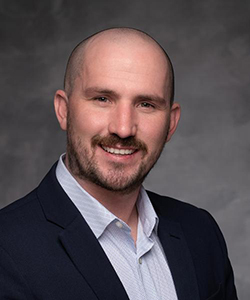September 23, 2024

Whatever your ailment, there’s probably a drug for it. Often, a prescription is the quickest and easiest way to feel better. But over time, those prescriptions can add up.

“It’s common to take a medication for symptom relief,” says James Newman, MD, an MU Health Care family doctor. “Before you know it, 10 years go by, and you may not even remember exactly why you went on that medicine in the first place.”
Using five or more medications regularly is commonly referred to as “polypharmacy,” and it’s a growing concern among health care professionals. It used to be an issue mainly with older adults, but Dr. Newman says the overwhelming trend is that polypharmacy is also affecting young and middle-aged adults.
He shares why — and how — to avoid polypharmacy:
Why Is Polypharmacy a Problem?
Some people need a lot of medication, and their health is better because of it.
“There are some health issues, such as heart disease, cancer or mental illness, that may require numerous medications,” Dr. Newman says. “In those cases, polypharmacy is appropriate, and the benefits may outweigh the risks. But many people are taking medication they don’t necessarily need.”
Eliminating unneeded or potentially harmful medications can greatly reduce the risks associated with taking multiple medications.
Taking five or more medications can increase your risk of:
- Adverse drug events
- Drug-drug interactions
- Falls and fractures
- Increased hospitalizations
- Cognitive decline
- Morbidity and mortality
- Renal (kidney) failure
Polypharmacy is also hard on the wallet. The National Institutes of Health (NIH) reported in 2022 that people on five or more medicines a year may spend approximately $11,000 more annually in health care costs than people on fewer than five medications.
Reviewing Your Prescription Medication
Whether you’re thinking about your current medication use or about to start taking a new one, Dr. Newman says you should know the answers to these questions:
1. Why Am I On This Medication?
If you’ve been on a prescription medication for multiple years and it’s not the only one you take, you may be a little fuzzy on why you started taking it. Pinpoint the exact condition or symptom being treated.
“Every time you put a pill in your body, the responsibility ultimately comes down to you, so it’s a good idea to know why you are taking it,” Dr. Newman says. “If you’re not sure, ask. No doctor is going to be offended if you say, ‘I don’t know why I’m on this medicine.’”
2. What Can I Expect This Medicine to Do?
Knowing why your doctor prescribed a medication isn’t enough. You should know how exactly that medication is supposed to address your issue.
“If your medication is for a specific symptom, such as migraines, what’s the expectation?” Dr. Newman says. “Should you expect to be migraine-free? Or experience fewer migraines a week? If you don’t know what to expect, you won’t know if the medication is doing its job.”
3. How Long Will I Be Taking This Medication?
When prescribed medication for an acute issue like an infection, you take medicine for several days or weeks, your infection clears (hopefully), and you’re done. But medicine for a chronic or ongoing condition, such as acid reflux or mental health issues, can be tricky. You may need that medication for life or just for a while.
Research shows that Americans born in 2019 will spend up to 60% of their lives taking prescription drugs. That’s often more years than they’ll spend in school or married. Most men in the United States begin taking prescription drugs by age 40. Most women are taking prescription medication by age 15.
“It’s valuable to know how long you may need to take each medicine,” Dr. Newman says. “Automatic refills make it easy to keep taking meds without questioning whether you still need them. But if you know a treatment could be temporary, you and your doctor can create a plan to wean off the medication when the time is right.”
4. Is the Medication Working?
Medications prescribed to relieve symptoms that aren’t actually relieving your symptoms are not doing their job. It may be scary to stop taking medicine that offers partial relief, but you could be missing out on a treatment that can provide better relief.
“There are multiple medications in the same treatment category and that do something similar,” Dr. Newman says. “There may be a medicine available that is more appropriate and effective for your symptoms, or there may be a non-medication treatment option.”
5. Are the Risks Worth the Reward?
Anyone who’s seen a medication commercial knows that prescription medications come with side effects. But you don’t have to live with those side effects, especially if the benefits of the medication aren’t worth it.
“In the health care field, we are always looking at the utility of the services and treatments we offer — do the benefits outweigh the potential risks?” Dr. Newman says. “Most people don’t want to take a medicine that will make them feel worse just because it may slightly reduce the overall risk for a heart attack or stroke.” If you are living with uncomfortable side effects, talk to your doctor about whether that medicine, or an alternative medication, is necessary.
6. What Are My Other Treatment Options?
In many cases, prescription medication isn’t the only treatment option. Other medications or lifestyle modifications may achieve the same results.
If your doctor prescribes a new medication for a chronic condition, Dr. Newman recommends discussing and weighing your options with your doctor before adding another prescription drug.
“Most chronic medical conditions take decades to develop, so it’s OK to pause and collect information about your treatment options,” Dr. Newman says. “For some chronic conditions, it’s appropriate to try to treat it naturally with exercise and diet before turning to medication.”
7. Does My Primary Care Doctor Know All the Medications I’m Taking?
Ultimately, you are responsible for what you are putting in your body. But you don’t have to manage your medications alone. Your primary care provider should be your first contact when managing your overall health — including medications.
Dr. Newman recommends physically bringing all your medications in their original bottles or packaging to your appointment so your doctor can see what you take and how it was prescribed.
“I’ve seen patients on seven or more medications safely reduce it to two prescriptions — and they don’t feel any different or worse,” Dr. Newman says. “Partner with your doctor and ensure the medications you take provide a health benefit. When it comes to prescription medication, sometimes less is more.”
Next Steps and Useful Resources
- Want to discuss with a primary care doctor? Find one today.
- Need to discuss complex medications for a chronic condition? Learn more about our specialty pharmacy services.


